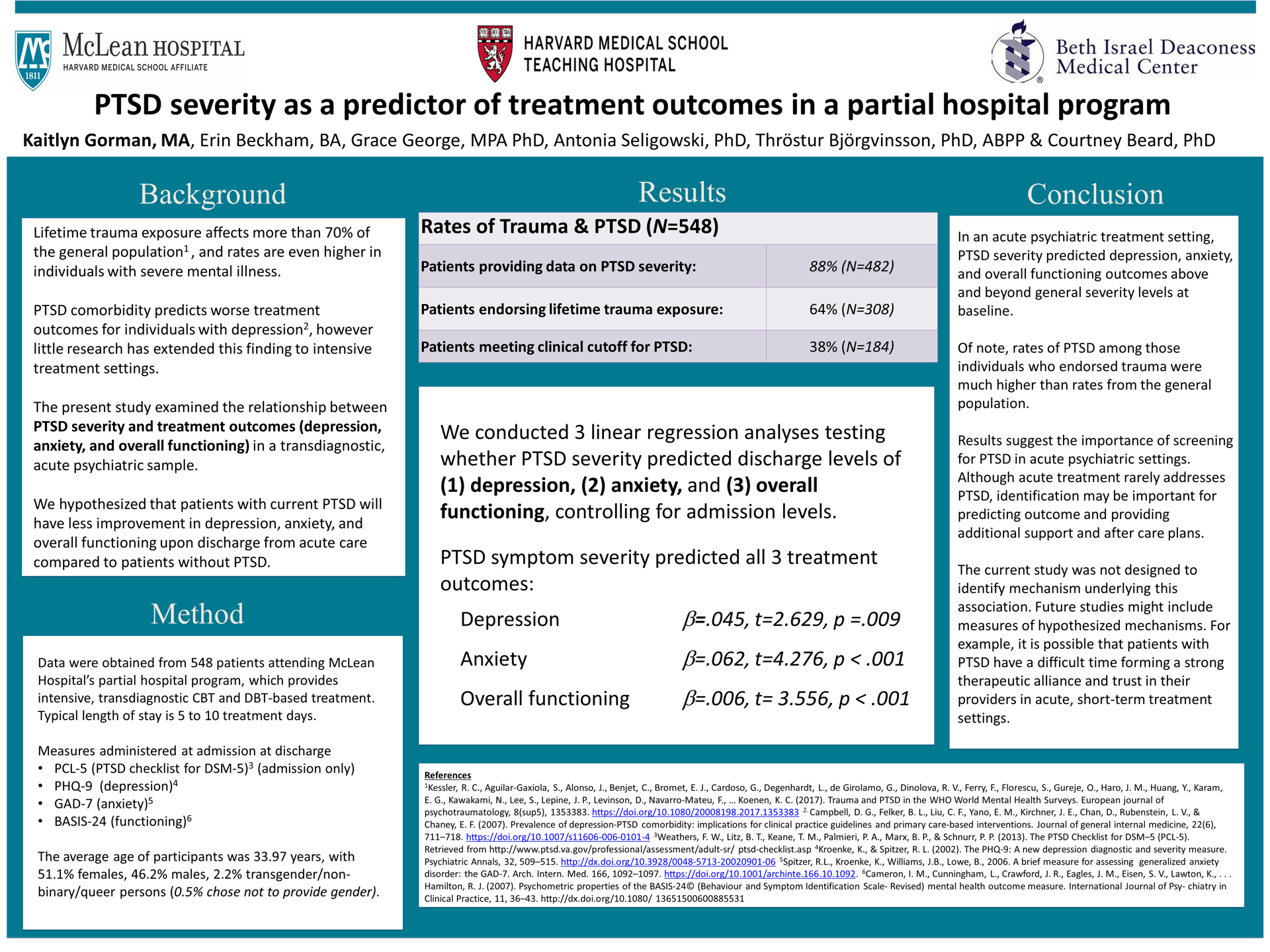Scientific Abstract
Background: Lifetime trauma exposure is extremely prevalent, affecting more than 70% of the general population. Survivors of traumatic events are at risk for developing Posttraumatic Stress Disorder (PTSD). The incidence of trauma in individuals with severe mental illness or previous mental health hospitalizations has been shown to be greater than that of the general population. A growing body of literature has shown PTSD comorbidity to predict worse treatment outcomes for individuals with depression compared to individuals without PTSD. However, limited research has been conducted on the role of PTSD severity on treatment outcomes in individuals requiring more intensive treatment, such as those attending a partial hospital program.
Methods: Data on depression (PHQ-9), anxiety (GAD-7), and overall functioning (Basis24) was collected from a partial hospital program sample (N=548) at admission and discharge from the program. We conducted linear regression analyses of outcome data to look at the impact of PTSD severity (PCL-5) while controlling for baseline levels of depression, anxiety, and overall functioning.
Results: Out of 482 individuals that provided data on PTSD severity, 64% (N=308) endorsed lifetime trauma exposure, and 40% (N=184) met the clinical cutoff for PTSD. Out of those individuals that endorsed lifetime trauma exposure, 60% met the clinical cutoff for PTSD. Controlling for baseline symptom level, PTSD symptom severity predicted level of depression, b=.045 t(2)=2.629 p=.009, anxiety, b=.062 t(2)=4.276 p<.001, and overall functioning, b=.006 t(2)=3.556 p<.001, upon discharge.
Conclusion: Results indicate that PTSD severity predicts depression, anxiety, and overall function outcomes beyond what is predicted by baseline scores on each respective measure. We plan to present analyses based on a final dataset of over 500 patients with PCL-5 data. These results have important implications for treatment at partial hospital programs and other acute psychiatric settings. Such settings rarely address PTSD symptoms due to their focus on quickly stabilizing mood symptoms. However, the current results suggest that providers may need to attend to PTSD severity and tailor an individual’s treatment plan and aftercare to emphasize treatment for PTSD.

